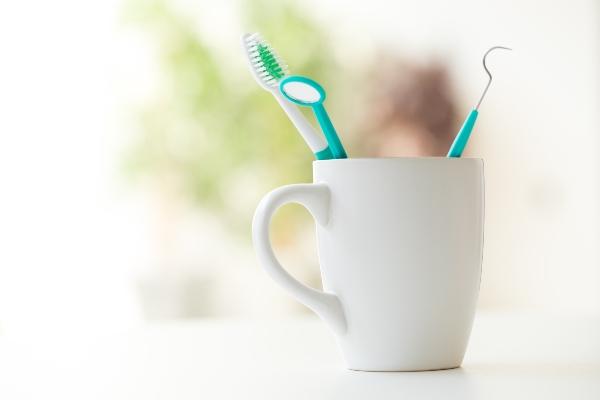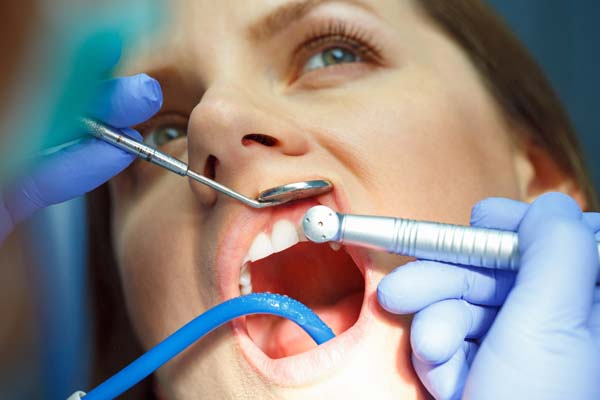 Maintaining routine dental care is important for oral and overall health, but many patients have questions about what it consists of beyond daily brushing and flossing. The right answers can help patients of any age understand the importance of providing optimum care for their teeth and the possible issues if they fail to follow through. Asking questions at the dentist can help fill knowledge gaps.
Maintaining routine dental care is important for oral and overall health, but many patients have questions about what it consists of beyond daily brushing and flossing. The right answers can help patients of any age understand the importance of providing optimum care for their teeth and the possible issues if they fail to follow through. Asking questions at the dentist can help fill knowledge gaps.
5 questions about routine dental care that everyone should know the answers to
Most patients have questions or concerns about proper oral hygiene and dental care. Unsurprisingly, dentists hear many of the same ones frequently. Here are several common questions about routine dental care.
1. Do daily brushing and flossing really matter?
The American Dental Association asserts that daily brushing and cleaning between teeth with floss or an interdental cleaner are two of the most important steps individuals can take to avoid tooth decay. By removing bacteria and food particles, brushing also helps reduce halitosis. For optimal results, brush for two minutes twice per day and invest in a new toothbrush every three to four months.
2. How does good oral hygiene impact overall health?
According to the Mayo Clinic, gum disease is linked to an increased risk of developing endocarditis, cardiovascular disease, pneumonia, and pregnancy complications. A 2018 study by Eke, Thornton-Evans, Wei, Borgnakke, Dye, and Genco reported that 43% of adults over 30 exhibit signs of gum disease. This statistic has profound implications stretching far beyond oral health.
3. Why are professional cleanings necessary?
Proper oral hygiene is important, but it is not the only aspect of routine dental care. Twice-yearly cleanings at a dental office also play a vital role in maintaining good oral health. During a cleaning, a hygenist removes plaque and tartar from tooth surfaces. A fluoride treatment may also be applied to help protect and strengthen tooth enamel.
4. What can patients expect at an annual exam?
A comprehensive annual exam with a dentist is an integral part of a dental care routine. In most cases, an exam includes dental X-rays, an assessment of gum health, and a check for abnormalities of the head, neck, and face. Dentists also look for any unusual wear patterns and can perform an oral cancer screening.
5. How do diet and nutrition impact dental care?
A healthy diet plays a significant role in routine dental care. Sugary foods, such as sodas and candy, generate an acidic environment in the mouth that degrades tooth enamel. It takes the mouth an hour to neutralize that acid. During that time, dental enamel is under attack. In addition to contributing to cavities, excess acid can also lead to sensitivity, which may cause patients to delay other dental care activities.
Conclusion
Good oral hygiene can minimize the risk of developing cavities, gum disease, and bad breath. Proper dental care includes brushing and flossing daily to remove food particles, clean teeth, and prevent plaque buildup. Annual exams that include a cancer screening are another crucial component. Exams are useful for spotting potential problems early so they can be addressed.
Request an appointment or call The Smile Spa at 818-573-2196 for an appointment in our Agoura Hills office.
Recent Posts
Routine dental care is vital for anyone striving to achieve optimum health. Dentists recommend two preventative dental visits per year, but much can happen between visits; therefore, it is crucial to get the most out of each appointment.Professional cleanings are an essential component of routine dental care and can remove plaque and tartar below the…
Incorporating good habits into routine dental care on a daily basis can help teeth and gums stay as healthy as possible. Regular dental hygiene is associated with reduced plaque, fewer cavities, and less incidence of gum disease over a person's lifetime. Patients do not need to completely overhaul their oral health routines. Instead, implementing a…
It is well known that routine dental care is essential to the maintenance of a patient’s oral health, but the reasons why are not always as clear. Patients who have questions regarding dental care should consult with a dentist for help in understanding the importance of properly caring for their teeth.The following are common questions…


